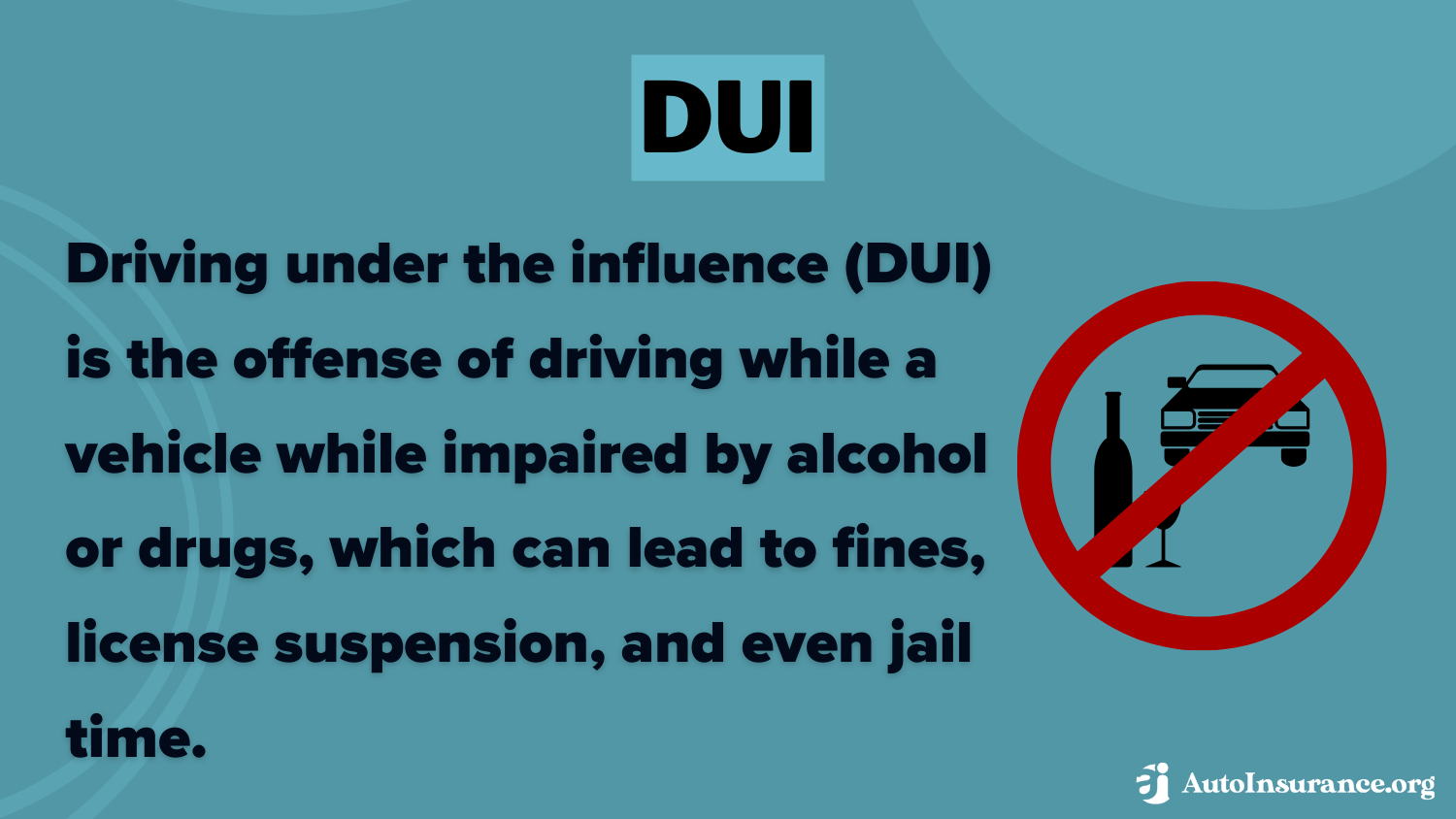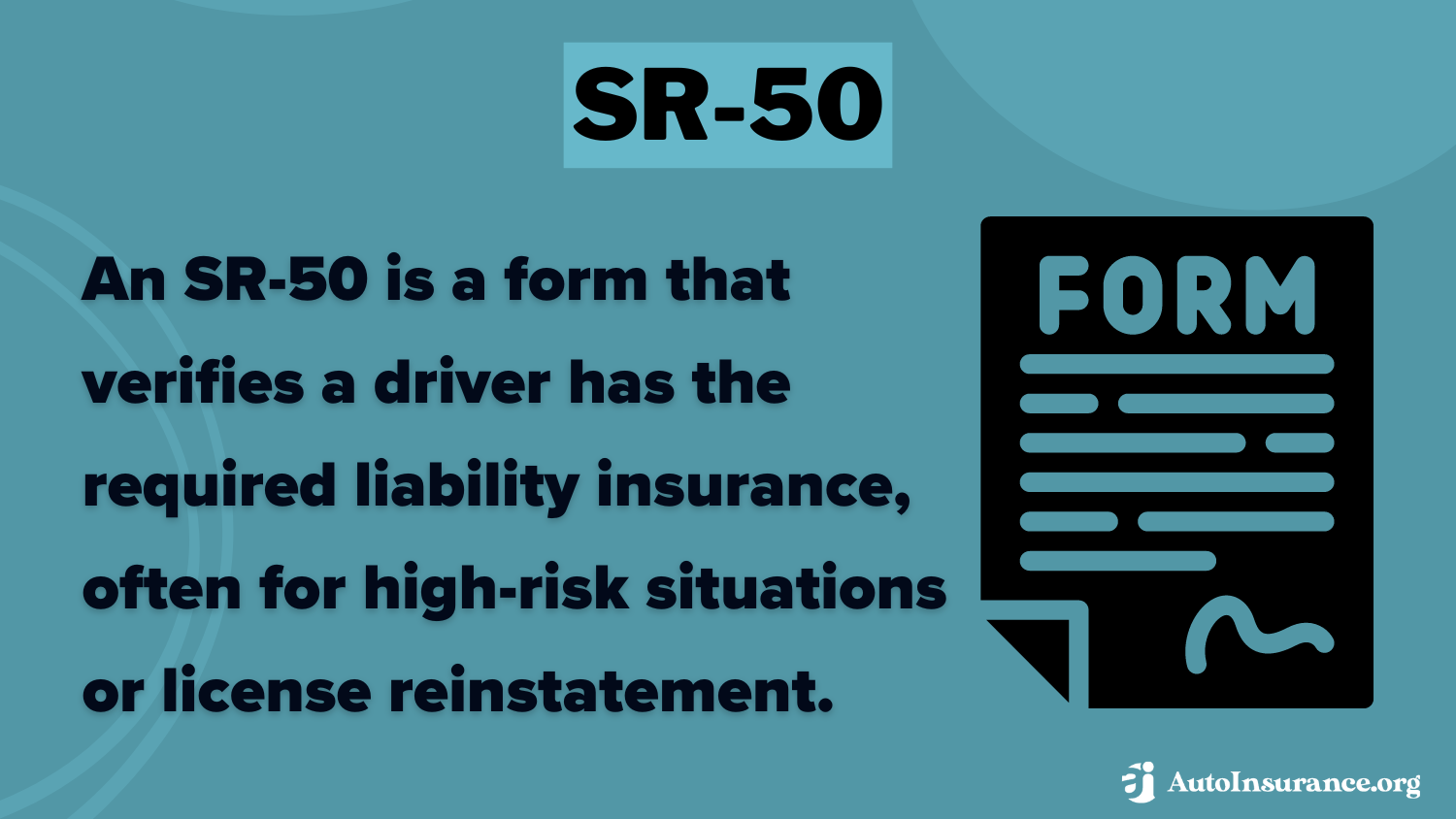Can you return a financed car without getting a penalty? (2026)
You may wonder, "Can you return a financed car without getting a penalty?" No, you'll likely pay a fee of $200 to $500, and it impacts your credit. Consider selling the car, trading it in, or refinancing. Below, we'll explain how to return a car you can't afford and what happens when you return a financed car.
Read more Secured with SHA-256 Encryption




Table of Contents
Table of Contents


Managing Editor
Laura Kuhl holds a Master’s Degree in Professional Writing from the University of North Carolina at Wilmington. Her career began in healthcare and wellness, creating lifestyle content for doctors, dentists, and other healthcare and holistic professionals. She curated news articles and insider interviews with investors and small business owners, leading to conversations with key players in the le...
Laura Kuhl


Licensed Agent & Financial Advisor
Schimri Yoyo is a financial advisor with active insurance licenses in seven states and over 20 years of professional experience. During his career, he has held roles at Foresters Financial, Strayer University, Minnesota Life, Securian Financial Services, Delaware Valley Advisors, Bridgemark Wealth Management, and Fidelity. Schimri is an educator eager to assist individuals and families in ach...
Schimri Yoyo
Updated December 2024
A top question readers ask is, “Can you return a financed car without getting a penalty?” No, you can’t return a financed car without penalty, as most dealerships charge cancellation fees between $200 and $500.

In addition, it could hurt your credit score and insurance rates.
Read More: How Credit Scores Affect Auto Insurance Rates
This guide will answer the question, “Can you return your car to the bank?” and help find alternatives to avoid harsh penalties.
Loan payments and expensive auto insurance often make it difficult to finance a car on a budget. Enter your ZIP code into our free online tool to compare cheap auto insurance rates and find an affordable plan.
- You can’t return a financed car to the dealership without some sort of penalty
- Returning a financed car will negatively impact your credit score
- Consider selling your car, trading it in, or refinancing to avoid penalties
Returning a Financed Car Without Penalty Isn’t Possible
Can you return a financed car back to the dealer? Yes, you can return it through a process called voluntary repossession, but you’ll likely incur cancellation fees and credit hits.
Returning a financed car isn’t as simple as driving it back to the dealership lot and obtaining a refund. You’ll still be on the hook for the car loan even if you return it. However, if the dealer can resell it, you’ll just owe the difference between its initial sale price and how much they sell the returned car for.
You can return a financed car back to the dealer. However, you can't do so without being penalized in one way or another.Scott W. Johnson Licensed Insurance Agent
While financing a car may be a more affordable option than buying a car outright, car loan payments can still accumulate to the point where they’re hard to sustain. That said, by communicating with the dealership and considering all your options, it’s absolutely possible to evade a car loan without losing a small fortune or ruining your credit.
For drivers wondering, “If I finance a car, can I return it?” let’s examine a few of the most common reasons why some drivers might return a car for which they haven’t fully paid:
- A change in their financial situation (job loss, auto insurance costs, etc.), causing loan payments to become unaffordable
- A move to a new city where the driver doesn’t want to bring a car at all or prefers not to bring their current vehicle
- A car that seemed fine when purchased may have a number of hidden issues that a driver discovers before they’ve paid off their loan
- A driver has decided that the car they’re financing isn’t right for them
Many readers also ask, “Can I give a car back to the bank without ruining credit?” Except for any special circumstances outlined in your financing agreement, you won’t be able to return a financed car without facing some type of penalty.
So now that you know the answer to, “Can you return a financed car?” keep reading to learn how you can reduce the severity of penalties for returning a financed car.
Free Insurance Comparison
Compare Quotes From Top Companies and Save
Secured with SHA-256 Encryption
Alternatives to Returning Your Financed Car
If you’re wondering, “Can you return a car to the bank?” we’ll help you find some alternatives.
Based on what we’ve mentioned above, you’ve probably already determined that returning a financed car isn’t the best option for the health of your wallet or your credit rating.
When and how you return a financed car can make a considerable difference as to how much doing so will cost you. Fortunately, there are several alternatives to returning a financed car, including trading it in, selling it, and transferring the loan.
Review the table below for alternatives to returning a financed car.
Alternatives to Returning a Financed Car
| Alternatives | Pros | Cons |
|---|---|---|
| Trade the car in to the dealership | Good option if you still want to have a car while lowering the amount you owe the dealership | The actual value of your car may be less than the loan amount you have remaining, meaning you pay for a car you don't drive |
| Sell the financed car | Makes it easier to pay off the lease directly without having to go through the dealership | The actual value of your car may be less than the loan amount you have remaining, and it may be difficult to find a buyer. You won't have a car |
| Transfer the lease for the car | You may be able to get out of lease payments entirely while avoiding cancellation fees | May be difficult to find someone willing to take your lease, especially before your next payment is due. You won't have a car |
| Talk to the dealership about skipping upcoming payments | Good option if you're dealing with temporary financial difficulties | You'll still owe the same amount on your loan. The dealership may not allow you to skip payment dates |
| Refinance your loan | Good option for keeping your car while protecting your credit score | You'll still owe the same amount on your loan. And you may have to make payments for a much longer period before your car is fully paid off |
Depending on why you’re trying to return your financed car, you may have some other options worth considering. For example, if you’re in the process of finding a new job, you can request that your dealership allow you to skip a few payments while you search for work. These missed payments can then be added to the end of your loan term.
Can I return a car on finance if it has issues? If you’ve discovered numerous problems with your car, you may be able to trade it in at the dealership for a different vehicle instead of returning it. As long as your financed car’s value hasn’t depreciated too much since you began driving it, trading it in can leave you with a more affordable car and a loan that’s easier to pay off.
So, can I turn in a financed car if I’m moving? If you’re moving to a place where you won’t need a vehicle or you’ve decided that the car you’re financing isn’t right, you could find someone to take over your loan payment. This is often a win-win situation, since you escape your loan payments entirely, and the person that you find to assume your loan receives a great deal on a car. Talk to your dealership about their policies for loan transfers.
Consequences of Returning a Financed Car
So, what happens if you return a car you financed? Most of the penalties for returning your financed car should be outlined in your loan agreement.
Financing cancellation fees are the most common cost associated with breaking a car loan agreement before your term expires. Your financing agreement should disclose the total cost for cancellation.
Here are the penalties you can expect for returning a car that you’re still paying off:
- Loan cancellation fees ($200 – $500 flat cost in most cases)
- Depending on the actual return value of your financed car, you may still owe money on the loan after you bring it back to the dealership
You might also wonder, “Is it possible to return a financed car without hurting your credit?” Unfortunately, returning a finance car will negatively impact your credit score, particularly if you choose to have your car voluntarily repossessed.
According to Credit Karma, voluntary repossession appears on your credit report and can make future loans difficult to receive. The reason for this is straightforward: lenders lose confidence in your ability to make consistent payments after you reveal that you aren’t able to pay off your loan or otherwise violate your agreement.
Although you may have had entirely valid reasons for returning your financed car, lenders are more concerned with your ability to make payments than anything else. To limit damage to your credit score, consider refinancing your car loan with a low interest loan that you can pay off comfortably over several years.
Read More: Is it a good time to refinance an auto loan?
Still wondering “Can you return a car on finance?” Read on for more details and see if selling your car is a better alternative.
How to Sell a Car You’re Financing
If you’re wondering how to sell a financed car without paying it off, you have options. You can sell a car even if you’re currently financing it. Keep in mind that if you sell your financed car to someone else, you’re still responsible for the financing agreement and will need to pay off the amount that you still owe. If your car’s actual value has depreciated considerably since you bought it from the dealership, selling your car may not be your best option.
Read More: Recoverable Depreciation Defined
And since you don’t hold the title for your car, the process of selling your financed car to a private buyer can be a bit complicated, as you’ll need to communicate with both the dealership and the buyer to transfer ownership.
Free Insurance Comparison
Compare Quotes From Top Companies and Save
Secured with SHA-256 Encryption
What to Remember About Returning a Financed Car
So, can you return a car you financed without penalty? Returning a financed car — or having it voluntarily repossessed — will negatively affect your credit rating, and you’ll have to pay a cancellation fee of $200 to $500 in most cases.
Consider alternatives to returning your financed car, including selling it to a dealership or private buyer, trading it in for a more affordable car, or transferring the loan to someone else who’s willing to pay it off. If you’re struggling to pay off your loan, consider talking to the dealership about providing you more time to make payments on your loan, or refinance your loan at a lower interest rate.
Are you searching for the lowest cost coverage that gives you all the types of auto insurance you need? You may want to view our resources for finding cheap auto insurance as well as our auto insurance tips. As is the case with financing a car, auto insurance can be expensive if you can’t find a policy that’s right for your needs. (Learn More: Do I need full coverage insurance to finance a car?)
Try our free online quote tool to compare rates from the best auto insurance companies and find a plan that’s right for you.

Frequently Asked Questions
Can I return my car to the dealership if I can’t afford it?
Can I return my car if I can’t make payments? Some lenders allow you to return your car through voluntary repossession, but you’ll likely incur cancellation fees and a hit to your credit.
Generally, you’ll pay anywhere from $200 to $500 to cancel your auto loan.
Can I return my financed car without incurring any penalties?
Many readers have asked, “Can I return a car I financed without penalty?” Returning a financed car without penalties depends on the terms of your financing agreement and the policies of the lender.
However, in most cases, returning a financed car before the loan term is completed can result in financial penalties, such as early termination fees or charges for the depreciation of the vehicle. It’s essential to review your loan agreement and consult with your lender to understand the specific terms and potential penalties associated with returning the car.
What is the difference between returning a financed car and voluntarily surrendering it?
Returning a financed car typically refers to the act of voluntarily giving the vehicle back to the lender before the loan term is complete. Voluntarily surrendering the car is a similar concept, where you return the vehicle to the lender because you can no longer afford the loan payments. Both situations may involve financial consequences, but the terminology can vary depending on the lender and the specific circumstances.
What is the process for returning a financed car?
If you finance a car, can you return it, and what’s the process? The process for returning a financed car may vary depending on the lender and the terms of your loan agreement. Generally, you will need to contact your lender to express your intention to return the car. They will provide you with instructions on how to proceed, which may include returning the car to a specific location or arranging for a pickup. It’s important to communicate with your lender and follow their guidelines to ensure a smooth process.
What happens if you return a financed car?
What happens if I return a financed car? The penalties or fees associated with returning a financed car can vary depending on the lender and the terms of your loan agreement.
Common charges may include early termination fees, charges for excess mileage or wear and tear, and the difference between the car’s current value and the remaining loan balance. It’s crucial to review your loan agreement or contact your lender directly to understand the specific penalties or fees that may apply.
Your credit score may also be impacted, since returning a financed car indicates to lenders that you can’t reliably make payments.
Can returning a financed car impact my credit score?
Can I return my financed car to the bank without affecting credit? Unfortunately, returning a financed car can have an impact on your credit score. If the lender reports the return as a repossession or default, it can negatively affect your credit history and score.
Additionally, if you still owe a remaining balance after returning the car, it may be treated as a debt that went unpaid, further impacting your credit. It’s important to discuss the potential credit implications with your lender and explore all available options before deciding to return the car.
Are there alternatives to returning a financed car?
For those wondering, “Can I give back a financed car?” there are alternatives to returning a financed car, especially if you’re facing financial challenges. Some options include negotiating a modified payment plan with your lender, refinancing the loan to lower the monthly payments, or exploring the possibility of selling the car privately to pay off the loan balance. It’s advisable to discuss these alternatives with your lender or seek professional financial advice to find the best solution for your situation.
Can returning a financed car help me avoid further financial difficulties?
So, can I give back my financed car to avoid financial issues? Returning a financed car may alleviate the financial burden of monthly loan payments and associated expenses, such as insurance and maintenance.
However, it’s essential to consider the potential consequences, such as penalties and potential credit score impact. It’s recommended to carefully evaluate your financial situation, explore alternative options, and consult with your lender or a financial advisor to make an informed decision.
When you finance a car, can you return it and get your down payment back?
So, can you return a car that is financed and receive a refund for your down payment? The answer depends on many factors, such as the dealership’s policies and whether the down payment was a deposit or went toward the car’s purchase. Generally, you won’t get a down payment back if you return your financed car.
Can you return a financed car back to the bank instead of the dealer?
You may wonder, “Can I return my car to the bank?” Depending on your loan agreement, you can return your vehicle to the lender, which is known as voluntary repossession.
Can you give back a car on finance if you find a better deal elsewhere?
Can you return a car to the dealership if you can’t afford it due to job changes?
Can I give my financed car back if I’m moving abroad?
Can you return a financed car back to the dealer after a year if it doesn’t meet your needs?
Can I return a car I’m financing if I discover it has issues?
Can I return a car if I can’t make payments because they’re too high?
What happens if I return my car to the bank and it’s damaged?
If I’m financing a car, can I give it back without affecting credit?
Can you return a car you just financed and change it for another model?
Get a FREE Quote in Minutes
Insurance rates change constantly — we help you stay ahead by making it easy to compare top options and save.







